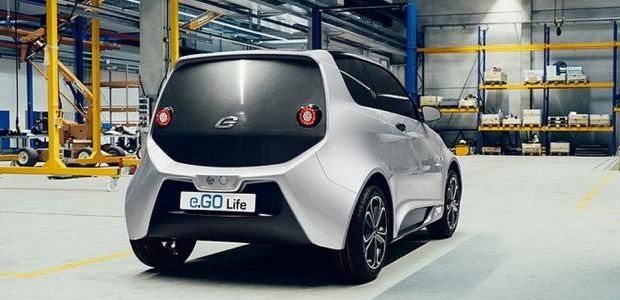Up-and-coming electric car maker Next e.GO, a German firm recently transferred to Dutch investment group ND Industrial BV, will today present its plan for the development of a production facility in Greece, an investment believed to be worth approximately 100 million euros.
The company’s decision was reached some time ago as a result of Greece’s improved business image abroad, positive market-research results, abundance of low-cost computer programmers and engineers, and, most crucially, the country’s ambitious economic restructuring plan, an initiative to be supported by 32 billion euros stemming from the EU recovery fund.
Talks began several months ago between Greek government and Next e.GO officials, who have already inspected a number of potential sites that could host the company’s investment plan.
Next e.GO, specializing in small, versatile, low-cost vehicles ideal for city use, is looking to set up its venture on a large expanse with access to key roads, railway infrastructure and within close proximity to the airport.
Further details on the investment, including its precise value, the prospective facility’s production capacity, development and launch schedule, as well as the degree to which Next e.GO sees Greece as a base for exports to neighboring countries, are expected to be disclosed at the presentation today.
The presentation will be preceded by the signing of a Memorandum of Understanding between Enterprise Greece, the Greek state’s official agency designed to promote the country’s investment opportunities, and Next e.GO CEO Ulrich Hermann, in the presence of Greek Prime Minister Kyriakos Mitsotakis and other key government members.
The car manufacturer’s flagship model, the e.GO Life, a 1.2-ton vehicle equipped with a 21.5-KW battery and 57-kW engine that was launched in 2018 at a retail price of under 16,000 euros, comes in variations, including the e.GO Life Sport and e.GO Life Cross models. Its distance range reaches 203 km in cities and 139 km on highways.
Other foreign firms considering the Greek market amid growing electromobility interest include the US firms Tesla and Blink, Swedish-Swiss multinational ABB, France’s Engie, as well as smaller producers.
Hybrid car sale forecasts in Greece have exceeded expectations this year, reaching 40 percent of total sales, well over a 20 percent target.





